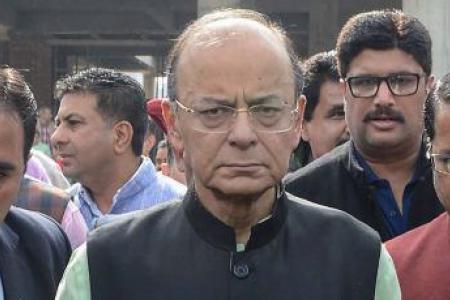India needs to bank on its morals
Indian ministers need to put banks at arms' length if they truly wish to have an ethical business community
A US$1.8 billion (S$2.4b) bank scam suggests there is one big owner yet to tame in India: The government.
A newish bankruptcy code has subdued influential tycoons by transferring some power to creditors.
New Delhi's dominance remains troubling, however, evidenced by a metastasizing scandal at the country's second largest state-controlled lender.
India's finance minister Arun Jaitley on Tuesday decried "a lack of ethics" among sections of the country's business community and criticised inadequate oversight by auditors and regulators following the fraud, which occurred at a state-controlled bank.
Mr Jaitley did not refer by name to Punjab National Bank (PNB), where junior employees allegedly helped firms obtain unauthorised credit from overseas branches of mostly Indian lenders, but he repeatedly referred to "a stray incident".
He said the country needs to examine "the lack of ethics that a section of Indian business follows", adding that internal and external auditors should examine whether they had "looked the other way or failed to detect" any wrongdoing.
Mr Jaitley also said "the supervisory agencies" needed to "introspect".
Firms involved in the fraud are allegedly linked to billionaire jeweller Nirav Modi and extended family members.
A lawyer for Mr Modi has denied the accusations.
Although Mr Jaitley didn't expressly call out Punjab National Bank (PNB), it would be hard to misinterpret the target.
The PNB debacle makes clear that it will be impossible to cut the crony cord completely if the authorities ineffectually dictate governance at lenders funding the same tycoons that they are trying to restrain.
His finger pointed almost everywhere - auditors, rogue bank officials, supervisory agencies - everywhere, except at his own administration.
There is plenty of blame to go around for the massive fraud .
PNB says two junior employees issued unauthorised letters of undertaking using the Swift financial messaging network to get overseas lenders to extend credit to firms linked to Modi and his extended family.
Mr Jaitley also implied that the government is allowing lenders to manage their own affairs.
That's true only to a point.
Politicians have stopped telling banks when to lend and at what rate, but still interfere in other ways.
For example, New Delhi appoints bank chief executives and influences board representatives, who are ultimately responsible for risk controls.
In many ways, this undermines the bankruptcy regime - modelled on Britain's - which sets clear parameters for how wealthy moguls must behave.
They can no longer borrow excessively without impunity and creditors can now flex their muscles when debts go unpaid.
The PNB debacle makes clear, however, that it will be impossible to cut the crony cord completely if the authorities ineffectually dictate governance at lenders funding the same tycoons that they are trying to restrain.
To resolve that situation would require hiving off the government's majority stakes in 20-odd banks.
Putting them at true arm's length from ministers is one option.
Outright privatisation, which would make the banks more competitive, would be even better.
Until then, India will have only fixed half its shareholding problem. - REUTERS
The author is a Reuters Breakingviews columnist. The opinions expressed are her own.
Get The New Paper on your phone with the free TNP app. Download from the Apple App Store or Google Play Store now



